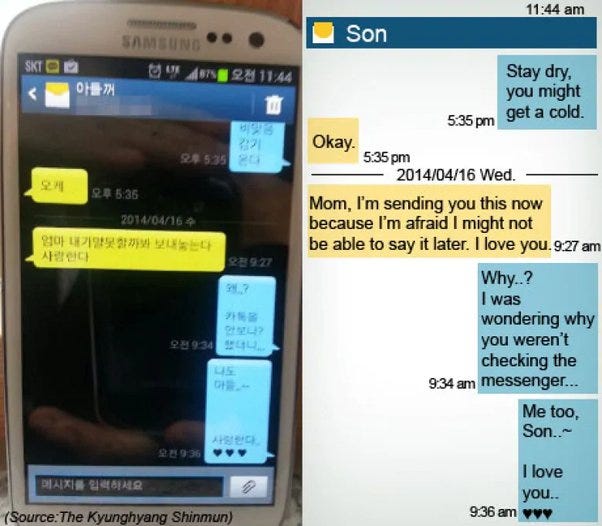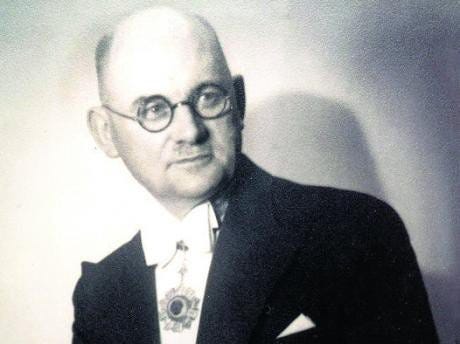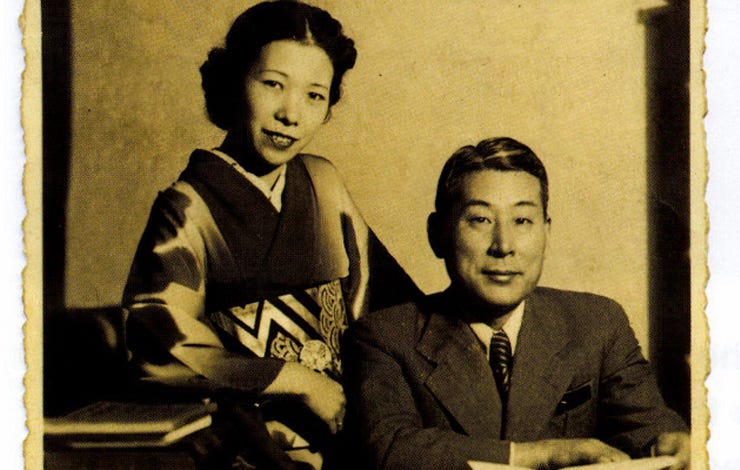
If you have been reading my work for a while it may seem as though I am quite dismissive of emotional empathy. That would be because I am to a degree. I see it fail so often because people rely on it to be automatic, but do not consider the deeper situation at hand. They are using a chemical cheat code to do their thinking for them.
I often state that neurotypicals need to develop cognitive empathy to be a complement to their emotional empathy. This does a couple of things. It allows people to be able to consider other factors that might be absent from their view using only their emotional empathy. The other would be giving a person a broader perspective on the world.
I don’t criticize emotional empathy because I consider it worthless. Instead, I criticize it when it remains unexamined. Recently I wrote an answer over on Quora speaking about emotional versus cognitive empathy. In the answer, I wrote about a situation where a woman was sexually harassed for twenty-seven subway stops by a man with every single person on the train ignoring it, and not helping her. It culminated in her being raped, and everyone else filming it with their phones. Emotional empathy never fired, and lack of cognitive empathy, a lack of firm beliefs in what is right and wrong, and a complete demonstration of narcissism in needing to film what happened instead of helping, left that woman to the mercy of a perverse criminal.
This is an indictment of society, and a complete lack of functional empathy. There is no excuse for it.
Not one single person stepped in to stop this from happening, and when the woman needed help the most, they started filming instead. My argument in this answer was that there was no empathy for that woman. Emotional empathy did not fire in anyone there. No one tried to step in and protect the woman while he followed her carriage to carriage for twenty-seven stops, harassing her. Of course, in the comment section, someone there had to be a chat about emotional empathy.
The answer, of course, is about how emotional empathy is not the saving grace that many neurotypicals think that it is, I had a person express to me how I, as a psychopath, am disabled due to my lack of emotional empathy. This is a perspective that is presenting neurotypicality as being superior to psychopathy. When I made the point that this was a perfect demonstration of how emotional empathy is a failure, they argued with me, informing me that it wasn’t lacking in empathy to call a person less than, when they are not the same as you.
This went back and forth for a time, and it became evident that their judgment was not going to change. They were too invested in defending emotional empathy without considering that it may be limited. I bring this up for a reason.
The reason that I criticize the lack of cognitive empathy is not to look down upon neurotypicals. In fact, I do so because I know that neurotypicals can do and will do many great things if they are called upon. It is evident to me that without incorporating cognitive empathy they are more or less kneecapping themselves, and I think that is quite unfortunate.
It is difficult to examine your own life and think that you might not be doing the best that you could be doing. It is very easy to think, I am nice to people, therefore empathetic and good. It is hard to think, I might be dismissing other people and their experience, thus limiting my own, because I am relying on a system that I don’t have any control over.
It is almost always that the people that have the least empathy, are those that claim to have the most. They believe that they are standing up for some imagined group of people that they feel the need to fight for and defend vehemently. Usually, at least on my content, it is the poor downtrodden neurotypicals that they have decided need this protection from me, the evil psychopath. They are so adamant about this, that they do not see that they are speaking to a complete stranger accusing them of every evil thing in the world, because they were born with a different brain structure.
But it’s okay, at least in their minds, because they are the righteous ones, and I am the one responsible for all the suffering in the world. Not only me specifically, but all psychopaths regardless of their deeds in life. When you lack cognitive empathy, when you lack the ability to judge people as individuals, and not a faceless group, you are giving away your power, and limiting yourself without cause.
The world is full of primarily neurotypicals and the world is full of good and considered actions. The vast majority of those good and considered deeds are undertaken by neurotypicals. Neurotypicals are capable of incredible and great things.
In another Quora answer, I spoke about a ferry disaster in South Korea. You can read about it here:
What are the scariest real life pictures?
On April 16th, 2014 four hundred and fifty people plunged into the sea when the ferry, MV Sewol capsized. It was illegally redesigned when the ship was purchased from Japan to add two additional floors. This increased the number of passengers it could carry by one hundred and sixteen people. It also increased the weight by two hundred and thirty-nine tonnes. This also shifted the center of gravity of the ship by one foot, eight inches, and gave it a left-right imbalance. These design changes were inspected and approved by the Korean Register of Shipping.
Next, on the day that it departed, it was carrying 2,142.7 tons of improperly secured cargo despite its maximum allowable weight being 987 tons.
The ballast tanks were not properly maintained, and they were short filled at only 791.2 tons. Also adding to the disaster were the actions of the crew and their steering of the ship. They took very steep turns which caused the Sewol to tilt too far and the extra cargo caused them to start taking on water.
The worst part of this disaster was were the passengers on this ship. Out of four hundred and fifty people, one hundred and seventy-two survived this. Two hundred and fifty of the dead were students from Danwon High school. They had been on a class trip to Jeju island. When the ship started to go down the crew told the people on the ship to stay below and wait for instructions. Unfortunately, many of the students listened which contributed heavily to the death toll. The captain and several crew members abandoned ship, leaving the rest of the passengers to fend for themselves, and in many cases die.
The reason that I bring this up is because of the pure heroism of three crew members, Park Ji-young, Jeong Hyun-seon, and Kim Ki-woong, who stayed behind and helped passengers escape. All three died. That is true empathy. Cognitive, and emotional, they chose to do the right thing. It cost them dearly, and fear is a strong motivating factor to not do what must be done. Three people faced that fear, and helped terrified kids get out of their icy tomb.
Here are some of the photos of that terrible incident:
Most of the crew abandoned these kids without any compunction whatsoever. Three stayed behind. If they hadn’t, there would have been even more empty chairs:
There is a reason that so many people left these kids on their own. There is a reason why parents got text messages like this:
There is also a reason that those three crew members did what they did. They paid the ultimate price, but this is but one of many examples of neurotypicals using emotional and cognitive empathy to do the right thing. Two examples that I think demonstrate this beautifully are John Rabe, and Chiune Sugihara.
John Rabe was a man stationed in China in the late 1930s. He was also a member of the Nazi Party. His nickname is “The Good Man Of Nanking”. This man was stationed in Nanking China for nearly thirty years at Siemens AG China Corporation. He was also a dedicated member of the Nazi party and the political party’s local head. During the Sino-Japanese war, six weeks of hell on Earth happened in Nanking. 50,000 to 60,000 Chinese people were massacred in horrific and astonishing ways.
With the approach of the Japanese army, those that could flee, did. Those who couldn’t, including those too old, poor, ill, and unable, stayed behind. With the army coming fast, John Rabe and several others attempted to negotiate with the Japanese consulate in Nanking hoping to establish a safety zone. Rabe even wrote to Hitler believing that he would protect the Chinese people by laying pressure on the Japanese to comply. He was obviously wrong.
As the days counted down, and in ignoring the Japanese government’s refusal to enact any safety zone, these individuals, German, English, American, and Danish, formed the International Committee for the Nanking Safety Zone. This was an area that the population could flee to in order to escape the coming bloodshed. This safety zone was two square miles, into which scores of people fled to. Rabe was the head of this committee.
Rabe himself raised his large flag bearing the Nazi symbol over his garden to deter Japanese bombers from striking his home. The refugees that were in his garden made their beds beneath this flag for protection.
He housed 650 people in his home alone. He used the Nazi armband and his membership in the Nazi party to keep the Japanese soldiers in check. He kept them from coming over his garden wall by waving it in their faces, he was able to get his stolen car back which was a necessity for transporting food and supplies. It was his use of a symbol synonymous with evil to save hundreds of thousands of lives, and in doing so could have been executed at any moment.
He had no reason to believe that the Japanese soldiers would even care about his country of origin, or the fact that he was a Nazi. To continue massacring people, they could have just as easily shot him in the head and continued their actions.
Rabe was forced to leave China before the massacre was over. One of the members of the safety committee had secretly filmed the atrocities in order to prove them to outside forces and compel action. Rabe, at great possible peril to himself, smuggled these films in his coat lining all the way back to Germany. He showed these films upon his return, wrote his letter to Hitler, and was arrested by the Gestapo.
After his release, he and his wife lived out the fall of Berlin and the following occupation by Allied troops. He was rearrested by the Soviets, and forced to undergo a “denazification” process in order to be able to rejoin society and gain permission to work. He was unable to obtain decent means of employment after that due to his failing health, and the survivors of the massacre, hearing of his misfortune raised what would be $20,000 and promptly sent it to him in gratitude. They also sent packages of food every month with letters of thanks.
After all of this suffering, John Rabe died in 1950 of a stroke. His tombstone was moved from Berlin to Nanking, where it stands now. Every moment of the massacre Rabe knew what could befall him, and what would befall those that he protected if he was killed. He acted. In the face of horrors that cannot be imagined but should be so the breadth of the capabilities of all humans be understood, he acted.
..there is a question of morality here… I cannot bring myself for now to betray the trust these people have put in me, and it is touching to see how they believe in me.
~John Rabe
This is Chiune Sugihara. He was a Japanese government official who served as vice-consul for the Japanese Empire in Lithuania. He helped over six thousand Jewish people travel through Japanese territories by issuing them visas.
In 1940, it became apparent to many of the Jewish population that they needed to flee the areas where they lived as the anti-semitism rose. However, without a travel visa, it was exceptionally dangerous to do so, and few countries would willingly issue them.
At the time, Jews from Lithuania made up over one-third of the population, and half the residents of all the towns. They arrived by the hundreds to the Japanese embassy seeking visas to escape, but the Japanese government had such stringent requirements that had to be met in order to qualify for one of these visas, nearly no one was able to get one. Also, the Japanese government required that all visas issued would have a third destination, and not a final destination of Japan.
Between the middle of July and the end of August in 1940, the applicants were in significant danger if they stayed. This was the genesis of Sugihara’s heroism. He shirked the duties that he was bound to and began issuing visas. His lower rank in the government made this act particularly surprising as disobedience is not something often found in Japanese officials.
He then spent eighteen to twenty hours a day, handwriting visas, creating a month’s worth of visas in a single day. Many of these were issued to heads of households. That granted them the ability to take their entire family with them on that single visa. Even as the consulate closed and he left his post he continued to write visas. He continued to do so in transit from his hotel to the train station where it is reported that he was literally throwing them out the window of the train.
In a final act, he threw blank sheets of paper with the official consulate stamp and his signature out the window so that people could fill them in and use them to save themselves and their families. Finally, when there was nothing more to be done, Sugihara bowed deeply, saying;
"Please forgive me. I cannot write anymore. I wish you the best."
Chiune Sugihara
There are so many examples of neurotypicals using both cognitive and emotional empathy in conjunction to do great things:
Flight 93-Passengers sacrificed their lives to stop further mass death on 9/11
Claus von Stauffenberg and other conspirators- attempted to assassinate Adolf Hitler
Garath Jones-Exposed the Holodomor and the horrors of Soviet Russia
Jonas Salk-tested the polio vaccine which contained a nonliving form of the virus on himself and his children before giving it to strangers
Harriet Tubman- Escaped slave that “conducted” other fleeing slaves through the underground railroad
Plague doctors and body collectors-who waded through an ocean of the dead and dying to either try to save the sick or remove the contaminated bodies at great risk to themselves
Tank Man- the anonymous man who on June fifth, 1989 stood in front of battle tanks the day after the Chinese government's violent crackdown on the Tiananmen protests
Martin Couney- Who, in the 1940s created one of the most popular Coney Island exhibits showcasing premature babies. To see the babies, you paid twenty-five cents, and with that funding Martin was able to pay a dedicated staff that cared for the infants, allowing many babies that ould otherwise not survived to thrive. He is credited with saving an entire generation of premature infants
I could list people until the end of time. There are so many examples. When I see what people are capable of, and what they limit themselves to, it is an annoyance to me. So many are happy to stay stagnant, when they could be thriving in their own lives, and having a positive effect on the world. Instead, people stay in their own bubble, thinking that they are good enough, and unable to see themselves, their thoughts, and their actions in an honest light.









Today’s Personal Lesson in Empathy
I was standing in the grocery line behind an older (rather disheveled looking) gentleman, casually listening to a conversation between him and the cashier. She (the cashier) was supporting him; I could tell they had a close connection.
When it was my turn, I said to her how nice her kindness was towards the gentleman.
Now starts the lesson:
The cashier told me about the gentleman’s background. He is a Veteran with a lot of psychological issues from being in active combat; PTSD etc.
And...
He has a neighbor who is a shut-in and he comes to buy groceries, using his own money, to assist his neighbor. She went on to say he is the most kind and selfless person she has ever met.
~ This experience will never be forgotten.
Perhaps what this article misses is that we have a word for the integration of emotional and cognitive empathy - it is called "compassion" where the mirroring of emotions is acted upon with chosen responses to address the situation. Emotions can motivate for good or evil. It is a questions of the beliefs that accompany the emotions. While short term behaviors can be coerced, the beliefs are the drivers of behavior in the long term.